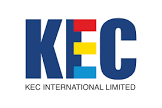Kootenai Electric Cooperative Inc

Total capacity of implemented projects
up to 10 MW
Countries of projects presence
1
Kootenai Electric Cooperative Inc. (KEC) is a member-owned electric cooperative located in the northwestern region of the United States. Founded in 1939, KEC has been providing reliable and affordable electricity to its members for over 80 years. The cooperative serves over 28,000 members in northern Idaho and eastern Washington.
KEC is committed to promoting sustainable energy practices and reducing its carbon footprint. As part of this commitment, the cooperative has invested in renewable energy projects in the biomass and waste sectors.
Biomass is a renewable energy source that is derived from organic matter, such as wood chips, agricultural waste, and municipal solid waste. KEC has partnered with local businesses and organizations to develop biomass projects that convert waste materials into energy. For example, KEC has worked with a local sawmill to install a biomass boiler that uses wood waste to generate steam, which is then used to power the mill's operations. This project not only reduces the amount of waste that ends up in landfills but also provides a reliable source of renewable energy.
In addition to biomass, KEC has also invested in waste-to-energy projects. Waste-to-energy is a process that converts waste materials into electricity or heat. KEC has partnered with local municipalities to develop waste-to-energy projects that convert municipal solid waste into electricity. For example, KEC has worked with the city of Coeur d'Alene to develop a waste-to-energy plant that processes over 50,000 tons of municipal solid waste each year. The plant generates enough electricity to power over 2,000 homes and reduces the amount of waste that ends up in landfills.
KEC's investment in renewable energy projects has not only helped to reduce its carbon footprint but has also provided economic benefits to the local community. By partnering with local businesses and organizations, KEC has created jobs and stimulated economic growth in the region. In addition, the cooperative's investment in renewable energy has helped to stabilize energy prices and reduce its dependence on fossil fuels.
KEC's commitment to renewable energy is reflected in its long-term strategic plan. The cooperative has set a goal of generating 20% of its energy from renewable sources by 2025. To achieve this goal, KEC has developed a comprehensive plan that includes investing in renewable energy projects, promoting energy efficiency, and educating its members about the benefits of renewable energy.
KEC's investment in renewable energy projects has not been without its challenges. One of the biggest challenges has been the high upfront costs associated with developing renewable energy projects. However, KEC has been able to overcome this challenge by partnering with local businesses and organizations and securing funding from state and federal grants.
Another challenge has been the intermittent nature of renewable energy sources, such as biomass and wind. To address this challenge, KEC has invested in energy storage technologies, such as batteries, that can store excess energy generated by renewable sources and release it when needed.
Overall, KEC's investment in renewable energy projects in the biomass and waste sectors has been a success. The cooperative has been able to reduce its carbon footprint, provide economic benefits to the local community, and promote sustainable energy practices. As KEC continues to invest in renewable energy, it will be able to achieve its goal of generating 20% of its energy from renewable sources by 2025 and continue to provide reliable and affordable electricity to its members for years to come.